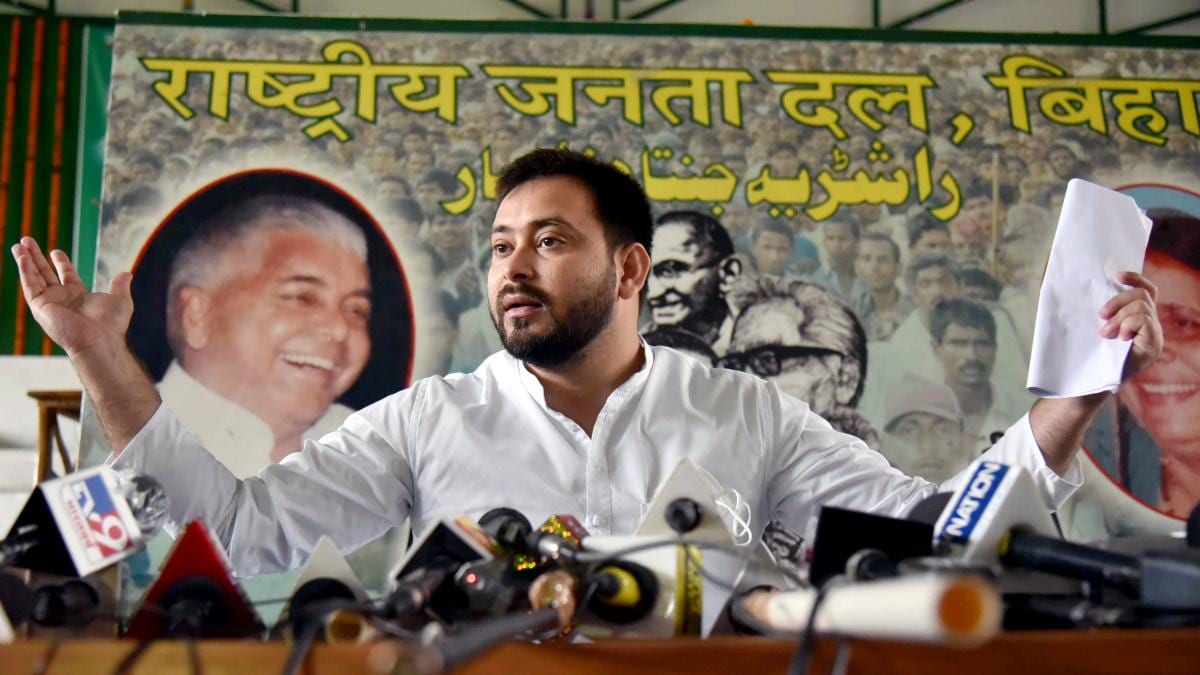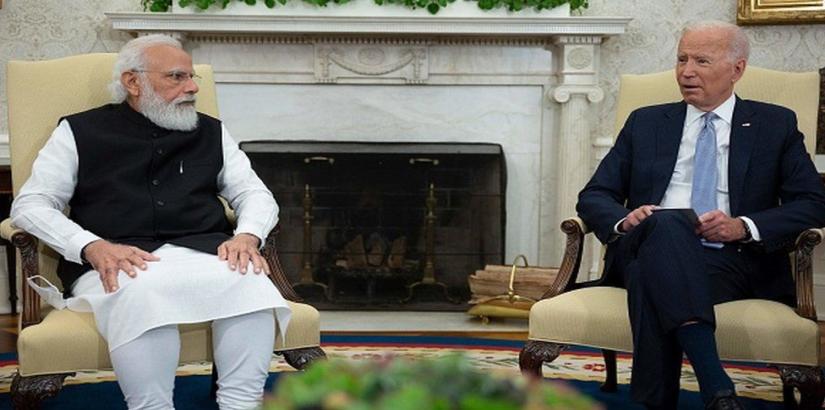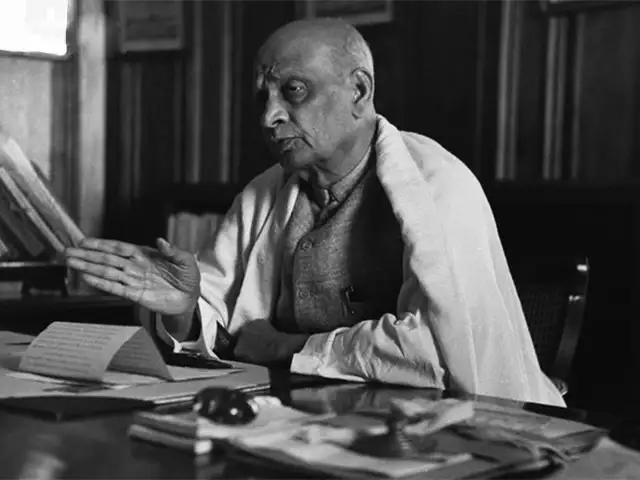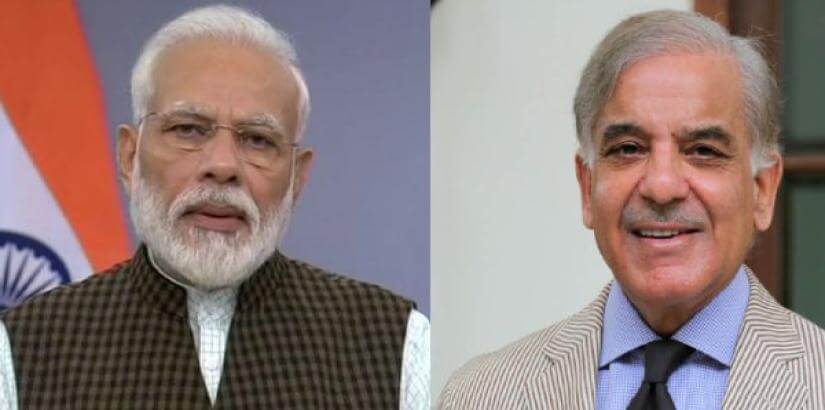Amulya Ganguli
Indian Prime Minister Narendra Modi’s presence at the victory celebrations in his party office in Delhi after his ruling Bharatiya Janata Party’s (BJP) success in Bihar state elections underscored the high importance of its achievement and the importance of Bihar in national politics.
After Maharashtra, Jharkhand and Delhi slipped out of the party’s grasp and it nearly lost Haryana, Bihar was of immense value to the BJP. Its worth must have seemed all the greater in the first few hours of the counting when the opposition Rashtriya Janata Dal (RJD)-led mahagathbandhan (grand alliance) was in the lead.
Since nearly all the exit polls had given the alliance an edge over the ruling Janata Dal (United)-BJP combine, those hours must have been nerve-wracking for the two governing parties. A setback would have queered the BJP’s prospects in next year’s West Bengal elections. They could only heave a sigh of relief when the duo finally moved ahead of the RJD.
As of now, they are high and dry and Chief Minister Nitish Kumar is expected to be back in his seat for a fourth five-year term. But there is little doubt that a complacent ruling establishment has had the scare of its life. Moreover, the dread will live with it, for Bihar has seen a new beginning for the opposition camp whose full implications, especially at the national level, will only be known in the fullness of time.
For a start, notwithstanding all the brouhaha over the Modi “magic”, it is undeniable that the redoubtable BJP wizard was sorely tested by a 31-year-old political greenhorn, the RJD chief Tejashwi Yadav, younger son of former Bihar chief minister Lalu Yadav, who is now in jail for corruption. Nor is the test over, for the RJD – a Bihar-centric party – will have a formidable presence in the state assembly while Nitish Kumar has been considerably weakened.
For instance, his party has lost the No 1 position in the state and the chief minister will now be more at Big Brother’s mercy than ever before. For the present, the BJP may treat him with care and even a touch of condescension, for having lost three of its allies in recent times – the Shiv Sena, the Akali Dal and the Lok Janshakti Party – the BJP will not like to alienate a third. But Nitish Kumar will know that even if he remains the chief minister, his moral sheen is gone.
But he is not the only loser. An even bigger one is the Congress, whose deficiencies in the realms of leadership and organization have been exposed by Tejashwi. One of the first thoughts of the commentators, when the mahagathbandhan began to lose ground, was whether the RJD had made a mistake by giving the Congress as many as 70 seats. Now, when the Congress has been able to win only 19, it is being said that the party has dragged its partner down. If it had been allotted fewer seats, the mahagathbandhan might have fared better.
The Congress, therefore, is being castigated as a liability and Rahul Gandhi is being compared unfavorably with Tejashwi. The Bihari dynast is seen as mature, politically savvy and restrained in his utterances, so much so that the Congress leader Digvijay Singh wants him to move to the center since Bihar is too small for him.
Since the other non-BJP leaders like Mamata Banerjee, chief minister of West Bengal, haven’t quite measured up to what is required to take on Modi, Tejashwi’s career will be increasingly under a scanner. He is undoubtedly the new star on the political horizon. Will he be another Uddhav Thackeray – the chief minister of Maharashtra – whose provincial clout will raise his national stature? Speculations on this score will be all the greater since the fortunes of the aging Grand Old Party are coming under a cloud.
It is not only in Bihar that the Congress with 19 seats is way behind the other parties – the RJD 75, the BJP 74, the Janata Dal (United) 43 – but the Congress has also fared poorly in the by-elections that were held in 11 states.
The BJP, on the other hand, has won 41 of the 59 seats while the Congress has been wiped out in Gujarat, where it lost all eight seats, and Karnataka where it lost the two, which were up for grabs.
In Madhya Pradesh, the Congress lost 19 out of 28, thereby giving a boost to Jyotiraditya Scindia who had joined the BJP a few months because he felt he was not been given his due in the Congress party.
For all practical purposes, the Congress is seemingly at its lowest ebb now when it appears ever more unlikely that it will reach the three-figure mark in terms of the Lok Sabha (parliament) seats in the near future. The party’s interim president, Sonia Gandhi, is in indifferent health while its former and possibly future chief, Rahul Gandhi, continues to appear to be a dilettante.
He is an average speaker and is not known either for his energetic presence or marshaling of ideas or organizational skills. Other dynasts like Uddhav and Omar Abdullah, not to mention Tejashwi, carry a greater potential. In Rahul’s case, it is patently his family lineage, which is behind his position at the party’s helm.
Because of the Congress’s failure to get its act together, the entire opposition in India appears to be in a moribund condition while the BJP has cleverly combined its pitch for vikas or development with an occasional dose of communal animosity to propel itself forward. South Asia Monitor







